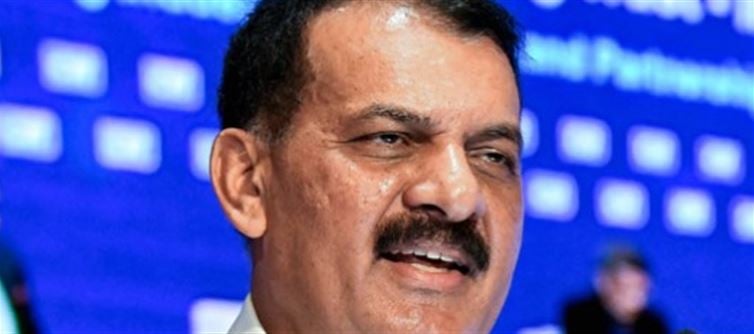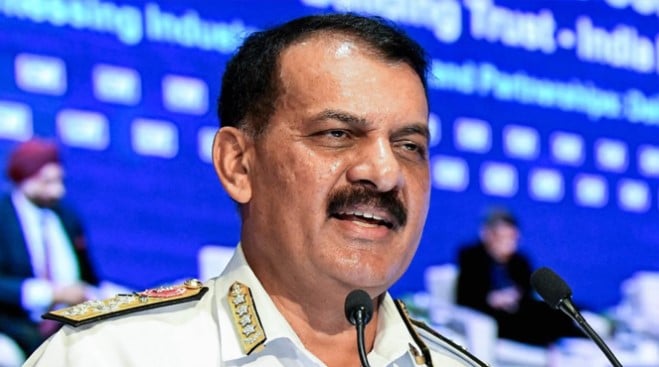
Indian Navy Chief’s Visit to the United States
Duration: Admiral Dinesh Kumar Tripathi, Chief of the indian Navy, is on an official visit to the united states from november 13 to november 17, 2025.
Objective: The visit aims to strengthen the long-standing maritime partnership and deepen defense cooperation between india and the US.
Focus on Maritime Security and Cooperation
The indian Navy emphasized that the naval partnership between the two countries is a key pillar of the broader India–US defense relationship.
Discussions will focus on enhancing maritime domain awareness, interoperability, and operational coordination in the Indo-Pacific region.
Both sides aim to boost cooperation on shared maritime priorities such as freedom of navigation, regional stability, and countering illegal maritime activities.

High-Level Engagements
Admiral Tripathi will meet with:
Admiral Samuel J. Paparo, Commander, US Indo-Pacific Command (INDOPACOM).
Admiral stephen T. Koehler, Commander, US Pacific Fleet.
Other senior officials and naval officers from key US naval institutions and operational commands.
Discussions will include expanding joint naval exercises, enhancing coordination under multilateral frameworks, and technology cooperation.
Multilateral Cooperation: MILAN and Malabar
Talks will cover India’s engagement in multilateral exercises like MILAN, which promote naval cooperation among friendly nations.
The visit coincides with Malabar 2025, a Quad naval exercise being held in Guam, USA, from november 11–18, 2025.
Participants include the navies of india, the united states, Japan, and Australia.
Malabar 2025 marks the first major military engagement under the new India–US defense framework.
Quad Solidarity and Regional Message
All Quad nations have reiterated that Malabar is not aimed at any country, but rather at enhancing collective maritime security.
Despite this, china continues to claim that the exercise is directed against it.
The visit underlines India’s commitment to a free, open, and inclusive Indo-Pacific and to strengthening defense ties with the US and other Quad partners.
Disclaimer:
The information contained in this article is for general informational purposes only. While we strive to ensure accuracy, we make no warranties or representations of any kind, express or implied, about the completeness, accuracy, reliability, suitability, or availability of the content. Any reliance you place on the information is strictly at your own risk. The views, opinions, or claims expressed in this article are those of the author and do not necessarily reflect the official policy or position of any organization mentioned. We disclaim any liability for any loss or damage arising directly or indirectly from the use of this article.




 click and follow Indiaherald WhatsApp channel
click and follow Indiaherald WhatsApp channel